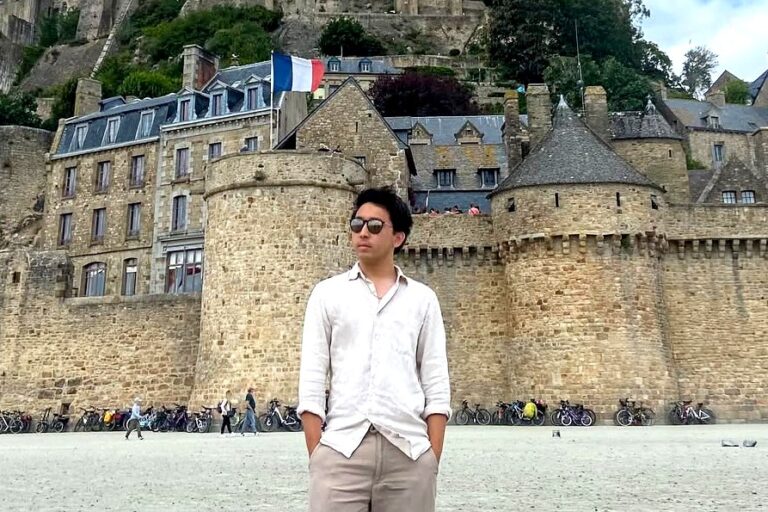Rocío Quispe-Agnoli, Professor of Hispanic Studies and Editor in Chief of the Journal of Gender and Sexuality Studies, has been awarded one of the prestigious William J. Beal Outstanding Faculty Awards. This important recognition acknowledges Professor Quispe-Agnoli’s outstanding and internationally renowned scholarship, her more than twenty years of experience as a college educator, her continuing dedication and service to the profession and to the development of her department, and her efforts in the mentoring of students and colleagues.

Professor Quispe-Agnoli is an internationally recognized teacher-scholar of Indigenous Latin American studies, 16th to early 20th century. Her specialization and the scope of her research interests are not only defined by issues of race and ethnicity but also by questions about the position of the feminine and the masculine in gender studies; processes of cognition, perception and (self) representation by different means, literary writing among them; the circulation of ideas and visual images across national borders, and the transformation of their meanings according to the cultural context in which they are used and reused. Identity, (self) identification, and (self) fashioning, gender, ways of knowing, and popular culture are four thematic areas in which her scholarly interests could be organized. With her studies in these four areas, she intends to uncover clues to the diverse and unresolved issues of contemporary (Latin) American societies and compare them with the colonial experiences of others from North America, Southeast Asia, or Australia. These themes do not exclude each other but rather intersect in various ways. Understanding power and its effect on society—the administration of politics—brought her to focus on issues of imperialism, colonialism and coloniality. Her publication record includes four scholarly books in Colonial Latin American literatures and cultures (La fe andina en la escritura, 2006; Nobles de papel, 2016, which received the 2017 Flora Tristán Book Award by LASA-Peru section; Women’s Negotiations and Textual Agency, 2017, and Latin American Literatures in Transition, pre-1492-1800, a collection of essays prepared in collaboration with Amber Brian (U of Iowa), and forthcoming with Cambridge University Press. She has (co) edited four monographic issues of scholarly journals and, since January 2020, she is the editor in chief of REGS/Journal of Gender & Sexuality Studies, sponsored by the Association of Gender & Sexuality Studies and published by MSU Press.
Her first book La fe andina en la escritura explored the impact of European writing on native societies of the early colonial Andean region. It examined the ways in which native and non-native writers used this medium to denounce colonial violence and intended to open the paths to a utopian society based on “good government.” This work was featured in two TV documentaries titled Sucedió en el Perú, (broadcast in November 2006 and October 2015 in Televisión Nacional del Perú).

In her second book, Nobles de papel, her research extended to visual artifacts of power and prestige (portraits, coats of arms) in eighteenth-century Spanish America. Nobles de papel received the 2017 Flora Tristán Book Award, by the Latin American Studies Association. In their report, the jurors said that it constitutes a compelling critical study of an eighteenth-century Indigenous Peruvian woman’s petitions in Mexico. It has been praised for its deep examination of the 250-year-old social, political and financial struggles of the descendants of Inca kings in Mexico and Peru. Additionally, the project allowed her to study the hemispheric movement of indigenous people during the eighteenth and the early nineteenth centuries.

Her third book, Women’s Negotiations and Textual Agency in Latin America, 1500-1799, is a collection of essays co-edited with Mónica Díaz (U of Kentucky) that studies Spanish-American and Lusophone women’s voices and writings that have remained invisible in colonial archives and official histories. This book focuses on the archive as an example or reconfiguration of ‘corpus’ in contrast to ‘canon’ in lettered societies. Her fourth book, Latin American Literature in Transition, is a collection of essays co-edited with Amber Brian (U of Iowa), which addresses colonial transitions that underline key cultural phenomena in present-day Latin American literature. To this end, the essays in this volume reflect on critical concepts about colonial Latin America, like transculturation, heterogeneity, contact zone, syncretism, intertextuality, and in-between.
Her latest publications include a critical-theoretical essay on the development of the key concept “Sujeto colonial” (Diccionario de términos críticos y palabras clave en la literatura latinoamericana. 2021); an interdisciplinary reflection about anthropocentrism and “colonialoceno” in the work of Indian writer Guaman Poma de Ayala, in collaboration with anthropologists A. Echazú and L. Greco (TECCOGS. Revista digitale de tecnologías cognitivas, 2021), and an essay on Inca Garcilaso de la Vega’s “Writing as an Indian” (MLA Approaching Teaching series, 2022).
Once finished with the last revisions of the volume to be published by Cambridge UP, she plans to continue working on her book manuscript “From Coyas to Doñas: Inca Noblewomen and the Making of the Colonial Archive” which studies written records and portraits of Inca characters authored and/or sponsored by Inca noblewomen between the 1550s and 1801. It builds upon extensive archival work that she has been conducting the last years during research trips to special collections in the US, Peru, Mexico, and Spain. Women of the Inca elite contributed in this way to the making of the native archive and the shaping of Spanish-Andean colonial history. Their paper trail, their voices and stories, remain in the repositories of colonial archives around the world, unpublished for the most part, invisible to the official historical and literary traditions of colonial Spanish America.
During her remarkable journey, she received many honors and distinctions recognizing her outstanding achievements and exemplary service in all of the above areas of professional engagement that one seldom sees combined in such striking balance and consistency. In addition to the awards that she has received as a teacher and as a scholar, Professor Quispe-Agnoli’s initiatives, innovations, publications, and presentations have been recognized with several awards in the last years, including the 2008 CLACS Outstanding Faculty Award, the 2013 Successful Peruvian Woman of the Year (Embassy of Peru in the US), and the 2013 TUMI USA award that celebrates her contributions to bringing to the forefront Peru’s rich cultural heritage. In 2016, she received the CAL Faculty Leadership Award for going “beyond the routine tasks, being generous in sharing insights and provide hard work and mentorship to others. This creates excellence and vision in programs and departments” as well as for “bringing the language sections within the College together in a fruitful collaboration in the areas of critical theory and cultural studies.” In 2019 she received the Inspirational Woman of the Year recognition by GenCen after nominations by her peers and students.
Congratulations Professor Quispe-Agnoli! You can find more information about Rocío’s research and other endeavors here, and here.


